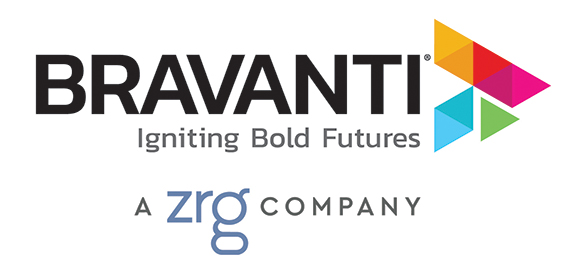By Kathryn Heath and Brenda Wensil, Authors of “I Wish I’d Known This: 6 Career Accelerating Secrets for Women Leaders”
One question we often ask our coaching clients is this:
“Who is your biggest supporter besides your direct manager or leader?”
After a long pause, the response is usually something along the lines of:
“I’m not sure. But I don’t engage in office politics. My work speaks for itself.”
While it’s true that careers may progress smoothly under the support of a single strong or influential advocate, things can rapidly change if that individual leaves the organization. In today’s volatile environment, organizational changes, market shifts, or other unforeseen events can weaken even the strongest support network, leaving your career vulnerable to stagnation or setbacks.
Living in a matrixed world requires you to build matrixed advocating systems, where you leverage a network of support across different areas of your organization or industry, ensuring that no single point of failure can jeopardize your career. It’s about diversifying your influence and creating a robust safety net for your professional growth.
In this blog post, we explain the power and security of creating a diversified support system to avoid the trap of relying solely on one person to be your advocate, which can derail your career. Doing so is too risky, and your impact is too important.
Managing Your Career is Crucial
After coaching hundreds of leaders and executives, we’ve witnessed the importance of building a network of career advocates and how doing so can accelerate an individual’s work and impact.
Creating an advocacy network rather than overdependence on one person provides multiple benefits:
- It broadens visibility for your work.
- It insulates you from early derailment of ideas and support.
- It opens doors for broader acceptance and adoption.
- It enhances your ability to navigate organizational politics effectively.
So, the questions to ask now are:
“Who are your advocates, supporters, and agents?”
“And what are you doing strategically to work on your career in this area?”
In our recent book, “I Wish I’d Known This,” we devoted a chapter to the value of being strategic with your career, and another on how to create the best scaffolding of support through advisors and other supporters.
It all boils down to this: For your career to take the path that you want, you must have people who can talk about your work, ideas, and credibility in meetings or among other influencers and decision makers.
Your advocates are the people who recommend you for assignments and jobs. They bring you up in conversations about succession planning or promotions. They work to make sure that you’re in key meetings and on key projects.
That’s a lot to ask one individual to do consistently, and there’s always the risk that they may not be a good advocate for others or that they may lack the necessary political capital. In this way, relying on a single individual to advocate on your behalf could lead you to miss broader opportunities.
Tips to Enroll Others in Your Circle of Support
Building a network of advocates is essential for sustainable career growth. Here are some tips to help you strategically engage and expand your circle of support:
1. Select Your Advocates
Pick two or three key leaders who are a level or two above you who have been exposed to your work or ideas. They could be stakeholders on projects you’ve worked on, or they may be old bosses or leaders you’ve worked with in other jobs or pursuits. The intention is to select influencers who know you and have seen you in action.
2. Educate Them Over Time
Once you’ve identified your advocates, it’s imperative to keep them updated on your successes. You need to be able to tell them about the work you’ve done and the results you’ve achieved.
For example, one woman we coached played an integral role in reducing her firm’s turnover rate. Another had increased efficiencies and reduced costs during an operational transformation, while another had increased her organization’s sales volume. All three were doing great work but it wasn’t enough to simply achieve results; they also needed to share them with their supporters.
Keeping advocates abreast of your achievements is a key component of building an advocacy network but is often overlooked. This is especially true among women, who frequently decline to highlight their wins to avoid appearing overly ambitious or self-serving.
Armed with some detail and a concise, compelling story about your successes, your advocates can share your wins with others and put you forward for career-changing opportunities. Make it part of your job to stay in touch with your advocates in a relevant way or plan informal time to stay connected and share goals. They can’t help you if they don’t know what you’re achieving and where you want to go!
3. Establish Trust
Most importantly, your advocates need to trust you. They need to know that if they recommend you, you will deliver. We know that trust is built on three fundamentals:
- Creating a connection
- Being consistent in how you show up
- Demonstrating credibility by being knowledgeable about your work and doing what you say you will do
Trust grows over time and is fortified through consistent actions. It’s not just about doing your job well—it’s about showing up as a dependable and ethical person. Establishing trust isn’t complicated or difficult, but it does take intentional time and focus.
4. Help Them
Success in creating advocates is a two-way street. Just as they will be helping you, think about how you can help your supporters achieve their goals or advance their work. Align yourself with their interests by understanding their top priorities, sharing valuable insights that support their goals, and positioning yourself as a trusted extension of their network.
Take Control of Your Career
As coaches, we often hear leaders express frustration about feeling stuck or stagnant in their careers. Our response is always the same: “What are you doing to actively shape your career trajectory?”
For many, it’s a wake-up call. Shifting focus back to their professional growth often ignites a renewed sense of purpose and momentum, creating an energizing and invigorating shift in how they approach their careers.
Building a network of advocates is not just about securing opportunities—it’s about positioning yourself as a leader who is intentional, proactive, and equipped to make an enduring impact.
Additional resources for Women Leaders:
Book: I Wish I’d Known This: 6 Career-Accelerating Secrets For Women Leaders
Book: Break Your Own Rules: How to Change the Patterns of Thinking That Block Women’s Paths to Power
Book: The Influence Effect: A New Path to Power for Women Leaders

